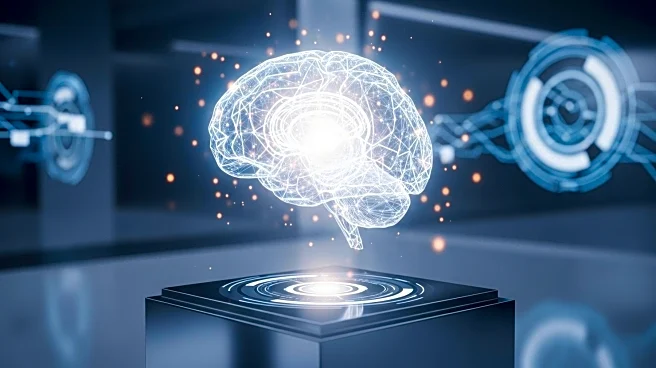What is the story about?
What's Happening?
The possibility of artificial intelligence (AI) being recognized with a Nobel Prize is a topic of growing debate among experts. While some believe that AI will inevitably be credited for significant scientific and engineering breakthroughs, others argue that AI lacks the real-world experience necessary for true innovation. Subbarao Kampbhampati, a professor at the School of Computing and Augmented Intelligence, part of the Fulton Schools, emphasizes the importance of human researchers' life experiences in the creative process. He suggests that AI's limitations in posing creative questions and gaining worldly insights may hinder its ability to achieve the level of innovation required for a Nobel Prize.
Why It's Important?
The discussion around AI's potential to win a Nobel Prize highlights the broader implications of AI in scientific research and innovation. If AI were to achieve such recognition, it could signify a major shift in how technological advancements are perceived and valued. This could impact funding and focus in research fields, potentially leading to increased investment in AI development. However, the debate also underscores the importance of human creativity and experience in driving innovation, suggesting that AI may complement rather than replace human ingenuity. The outcome of this debate could influence future research priorities and the role of AI in scientific discovery.















